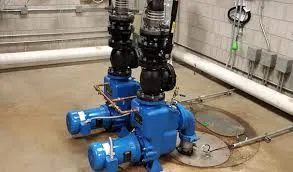Samoan
- Afrikaans
- Albanian
- Amharic
- Arabic
- Armenian
- Azerbaijani
- Basque
- Belarusian
- Bengali
- Bosnian
- Bulgarian
- Catalan
- Cebuano
- Corsican
- Croatian
- Czech
- Danish
- Dutch
- English
- Esperanto
- Estonian
- Finnish
- French
- Frisian
- Galician
- Georgian
- German
- Greek
- Gujarati
- Haitian Creole
- hausa
- hawaiian
- Hebrew
- Hindi
- Miao
- Hungarian
- Icelandic
- igbo
- Indonesian
- irish
- Italian
- Japanese
- Javanese
- Kannada
- kazakh
- Khmer
- Rwandese
- Korean
- Kurdish
- Kyrgyz
- Lao
- Latin
- Latvian
- Lithuanian
- Luxembourgish
- Macedonian
- Malgashi
- Malay
- Malayalam
- Maltese
- Maori
- Marathi
- Mongolian
- Myanmar
- Nepali
- Norwegian
- Norwegian
- Occitan
- Pashto
- Persian
- Polish
- Portuguese
- Punjabi
- Romanian
- Russian
- Samoan
- Scottish Gaelic
- Serbian
- Sesotho
- Shona
- Sindhi
- Sinhala
- Slovak
- Slovenian
- Somali
- Spanish
- Sundanese
- Swahili
- Swedish
- Tagalog
- Tajik
- Tamil
- Tatar
- Telugu
- Thai
- Turkish
- Turkmen
- Ukrainian
- Urdu
- Uighur
- Uzbek
- Vietnamese
- Welsh
- Bantu
- Yiddish
- Yoruba
- Zulu
Telephone: +86 13120555503
Email: frank@cypump.com
Nov . 08, 2024 12:24 Back to list
Cost Analysis of Ejector Pumps and Related Operational Expenses
Understanding the Cost of an Ejector Pump and Associated Expenses
When it comes to selecting a wastewater management system for residential or commercial properties, ejector pumps are often a crucial component. These devices are specifically designed to move wastewater and sewage from lower elevation areas to higher elevation ones, making them invaluable in buildings where gravity drainage is not feasible. However, understanding the total cost of an ejector pump, including associated expenses, is essential for effective budgeting and planning.
Initial Purchase Cost
The first component to consider is the initial purchase cost of the ejector pump itself. Prices can vary widely based on several factors, including the brand, capacity, and features. On average, homeowners might expect to pay anywhere from $300 to $900 for a reliable ejector pump. Commercial-grade ejector pumps can be significantly more expensive, often ranging from $1,000 to $3,000. Brands that are well-regarded for their quality and longevity may carry a premium price tag, but investing in a reputable product often pays off in terms of durability and lower maintenance costs.
Installation Expenses
Installation costs are another critical factor. Unlike simpler plumbing fixtures, ejector pumps require professional installation to ensure they function correctly and safely. The complexity of the installation can vary based on the existing plumbing layout and local building codes, but homeowners should budget an additional $500 to $1,500 for installation services. This includes the labor cost of hiring a licensed plumber and any additional materials needed for a successful installation, such as piping, fittings, and electrical connections.
Maintenance and Repair Costs
cost of an ejector pump and associated expenses for ...

Once installed, ejector pumps require ongoing maintenance to ensure they operate efficiently. Regular inspection and maintenance can often prevent larger, more expensive repairs down the line. Homeowners should plan for annual servicing costs, which may range from $100 to $300, depending on the service provider and specific checks performed. Additionally, it's wise to set aside a contingency budget for unexpected repairs, which can sometimes range from $200 to $1,000, depending on the severity of the issue and the need for replacement parts.
Energy Consumption
Another aspect often overlooked is the power consumption of the ejector pump. Ejector pumps are typically powered by electricity, and while they are not known for consuming vast amounts of energy, their operating costs can add up over time. Homeowners should consider the pump's wattage and the frequency of use when estimating annual energy costs. Generally, running an ejector pump might add an additional $50 to $100 yearly to electric bills, depending on local rates.
Summary of Total Costs
Taking all of these factors into account, the total cost of owning an ejector pump can be broken down as follows
- Initial Purchase $300 to $3,000 - Installation $500 to $1,500 - Annual Maintenance $100 to $300 - Energy Consumption $50 to $100 annually - Contingency for Repairs $200 to $1,000 (over time)
In summary, while the upfront costs of purchasing and installing an ejector pump can seem daunting, understanding the long-term financial implications—including maintenance, repair, and energy costs—can aid in making an informed investment. Ejector pumps play a vital role in effective wastewater management, ensuring that properties remain functional and sanitary, making it essential to consider their total cost of ownership. By budgeting appropriately, property owners can not only ensure compliance with local regulations but also enhance the lifespan of their wastewater management systems.
-
High-Efficiency Submersible Dredge Pump for Sand & Gravel Durable Dredge Slurry Pumps Solutions
NewsJul.07,2025
-
Wholesale Slurry Pump Impeller Supplier – High-Quality & Efficient Pump Parts for Enhanced Performance
NewsJul.07,2025
-
High-Efficiency Water Submersible Pumps Reliable Water Pump for Potable Water Supply
NewsJul.06,2025
-
Best Sewer Pump Reviews & Top Picks 2024 Reliable & Efficient Ejector Pumps
NewsJul.06,2025
-
China High Chrome Slurry Pump - Top-Quality, Efficient & Durable Pumps for Mining
NewsJul.06,2025
-
High-Performance Slurry Sand Pump Anti Abrasive & Durable Sand Slurry Pump Solutions
NewsJul.05,2025










